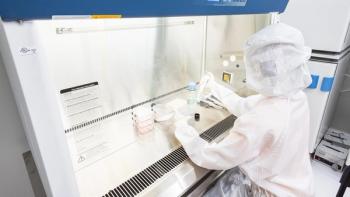
Document integrity is critical in the provision of raw materials for cell and gene therapy manufacturing.

Document integrity is critical in the provision of raw materials for cell and gene therapy manufacturing.

A Post Approval Change (PAC) to replace identity (ID) testing of incoming liquid drug substance with ID by visual inspection is considered a low risk provided questioned listed in this example have been answered favorably. In that case the PAC can be downgraded from a prior approval to a notification to health authorities, and managed in the PQS with immediate implementation effect.

A Post Approval Change (PAC) in size of thermal shipping solution used for transport of product is considered a low risk provided it has been qualified and temperature monitored, and therefore can be downgraded from a prior approval to a notification to health authorities, and managed in the PQS with immediate implementation effect.

A process flow diagram can help create an agreed-upon process flow for a third-party standard operating procedure, says Siegfried Schmitt, VP Technical at Parexel.

Addition of a testing lab to an existing testing site as a Post Approval Change (PAC) is considered low risk when there is no change to testing procedure, specifications, equipment, and the additional lab is already approved by health authorities for other testing activities. Such PACs should be managed in the Pharmaceutical Quality System (PQS) only rather than requiring prior approval.

A case study discussing why post-approval changes present a very low risk, and therefore can be downgraded from a prior-approval to a notification after implementation and managed in the PQS with immediate implementation effect.

FDA has approved Coherus’ Cimerli (ranibizumab-eqrn) as an interchangeable biosimilar for all five indications of Lucentis.

A strong digital backbone is foundational in driving innovation.

US legislators are devising strategies ahead of the reauthorization deadline for the FDA User Fee legislation.

An SOP for electronic-records archiving is a regulatory requirement and good for business, says Siegfried Schmitt, vice president, Technical at Parexel.

By understanding potential material change, the impact on patient safety can be understood and mitigated.

Agency leaders are moving to develop a rating system to identify those drug manufacturers with more dependable production operations.

The agency’s Medicines Shortages Steering Group has adopted a list of critical COVID-19 vaccines and treatments so they may be monitored for potential shortages.

The complex nature of biologics creates challenges for GMPs in sterile manufacturing, and the EU’s Annex 1 is making an impact.

When considering whether to outsource work to a CRO, there are a number of factors to assess, including the type of work that may be outsourced, regulatory considerations, and needs for the study.

FDA will use virtual site visits even after resuming active inspections.

Susan J. Schniepp, distinguished fellow at Regulatory Compliance Associates, discusses the basics for maintaining an acceptable working relationship between a client and their CDMO.

A new initiative aims to speed the approval of and access to new drugs for young patients around the world, while limiting the number of children needed for testing in clinical trials.

FDA’s Office of Compliance has released its 2021 Annual Report, which highlights the agency’s successes in public health.

FDA is incentivizing drug manufacturers through higher data integrity requirements.

Data may be used to improve (or remove) a corrective action/preventive action.

Performing corrective action and preventive action (CAPA) activities is often necessary to investigate a manufacturing deviation and prevent it from reoccurring. BioPharm International asked Joe O’Gorman, head of Global Operations at LZ Lifescience, a Cognizant Company, about the role technology plays in performing CAPAs.

Testing cleanroom garments while in use and during daily cleanroom operations is vital for contamination control.

Why critical thinking must be applied before technology to ensure regulatory compliance.

A consensus-based approach to GDP lies at the heart of a new industry-wide program seeking to rationalize, standardize, and harmonize the adherence to pharma transportation norms and regulatory guidelines.